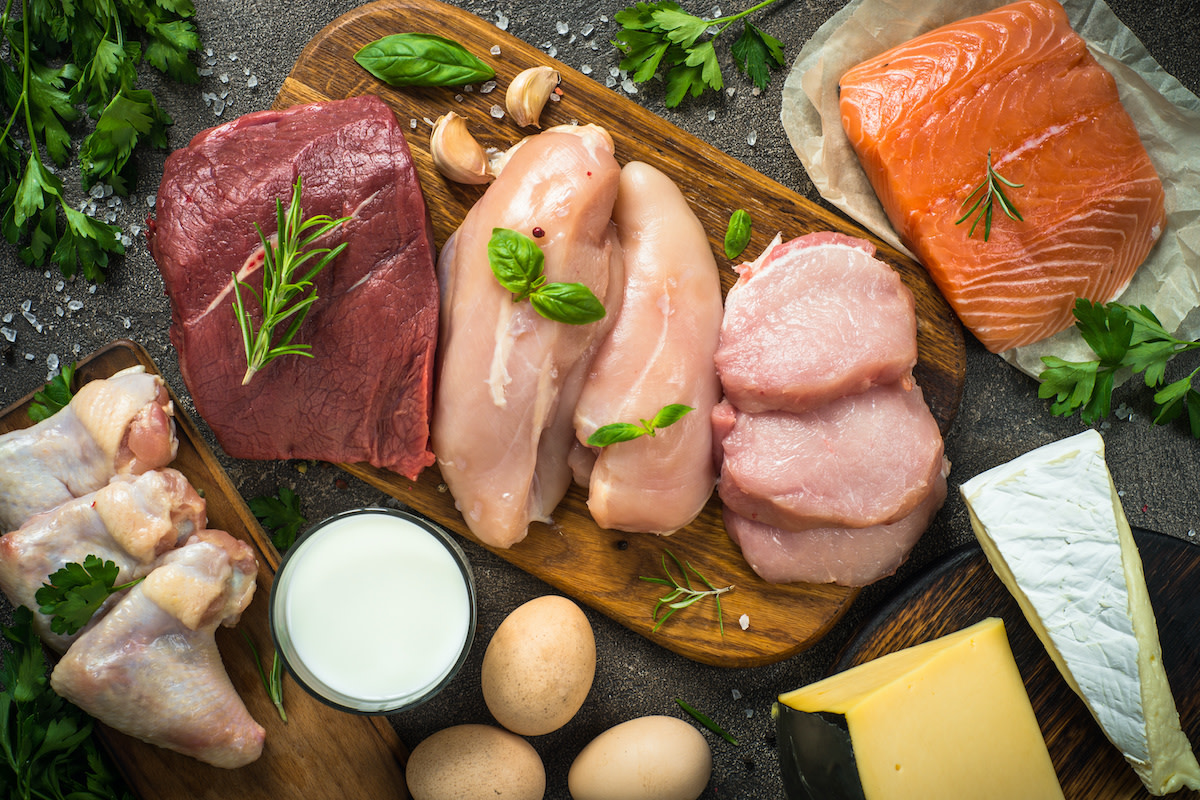Complete Proteins: Building a Balanced Diet
Written by MasterClass
Last updated: Jan 10, 2022 • 2 min read
Complete proteins include all of the nine essential amino acids the body needs. While most complete protein sources are animal-based products, there are vegetarian solutions as well.
Learn From the Best
What Are Complete Proteins?
Complete protein, sometimes referred to as whole protein, describes a type of protein that includes all nine of the essential amino acids. The nine amino acids that make up the building blocks of protein that the body needs include tryptophan, threonine, isoleucine, leucine, lysine, methionine, phenylalanine, valine, and histidine. Animal proteins such as eggs, beef, and fish contain all nine essential amino acids, so they qualify as complete proteins. Buckwheat and chia seeds are two examples of plant foods that are also complete proteins.
How Does the Body Use Protein?
Protein aids in the formation of muscle in the body. Paired with resistance training, the right protein intake can help athletes improve their athletic performance by increasing muscle strength. The amount of protein you should consume will vary based on your goals and body weight, but no matter what result you have in mind, your body needs complete proteins to maintain basic functions.
Examples of Complete Proteins
While you can take supplements to meet your complete protein needs, there are also many food sources of protein that will achieve the same results. These four types of foods and supplements are a good start to ensuring you get enough protein in your diet:
- Animal products: Animal proteins, such as fish, eggs, poultry like chicken and turkey, and meats like beef and pork, are the most common and abundant types of complete proteins.
- Dairy products: Cheese and milk are complete protein sources, but butter is not.
- Plant proteins: Quinoa, buckwheat, and chia seeds are great vegan sources of complete proteins, as are edamame, tempeh, and other soybean products that fall within vegan and vegetarian diets.
- Whey protein powder: Protein powder is popular among bodybuilders and athletes who mix it into smoothies to maximize their daily protein intake. Whey protein powder is also gluten-free and safe for those with celiac disease to consume.
Incomplete Proteins vs. Complete Proteins
Incomplete proteins contain some but not all nine of the essential amino acids. If you adhere to a vegetarian or vegan diet, you can combine complementary proteins, such as legumes and whole grains, to ensure that you’re consuming all the necessary amino acids. Here are some examples of plant-based meals and snacks that combine incomplete proteins:
- Peanut butter sandwich on whole grain bread
- Chickpea hummus with whole grain pita
- Lentils on brown rice
- Pumpkin seeds or hemp seeds with avocado on whole grain toast
Healthy Questions
Functional foods are whole or fortified fare that can potentially provide health benefits when consumed as part of a regular diet. Since these foods have yet to be legally defined, it’s important that consumers research any claims related to nutritional value and consult an accredited nutritionist or dietician before incorporating new foods into their diets. This article is for educational and informational purposes only and is not a substitute for nutritional advice from a trained professional.
Want to Dive Deeper Into Your Wellness Journey?
Throw on some athleisure, fire up a MasterClass Annual Membership, and get ready to sweat it out with exclusive instructional videos from Nike Master Trainer and GQ fitness specialist Joe Holder. Want to improve your cardiovascular endurance? Give Joe’s HIIT workout a go. Trying to get a little swole? He’s got a strength training workout for that. From fitness tips to nutrition hacks, Joe will have you feeling healthier in no time.
